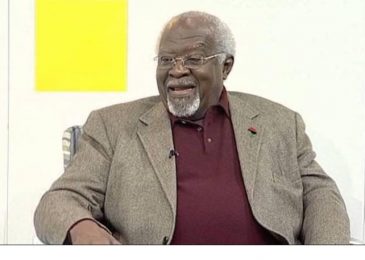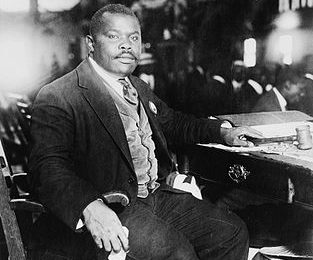KJIPUKTUK (Halifax) – This Friday Dr. Julius Garvey, son of influential Jamaican political figure and activist Marcus Garvey, spoke at Dalhousie University’s Ondaatje Hall. The event was organized by the provincial government’s African Nova Scotian Affairs.

Earlier in the week Dr. Garvey visited industrial Cape Breton, presenting at the Universal Negro Improvement Association Cultural Museum in Glace Bay and Cape Breton University’s Multiversity Learning Centre.
In Halifax Dr. Garvey spoke on ancient Egyptian history, mythology, and technology. He emphasised the need to understand history from an Afrocentric rather than a Eurocentric perspective. He argued that the way world history is taught largely excludes Africa.
Any historical narrative that excludes Africa is incomplete
Given that Africa was the birthplace of humanity, and that its River Nile cultures were among the first advanced civilizations, Dr. Garvey argued that any historical narrative that excludes Africa is incomplete. His worldview is meant to be taken not only as a challenge to Western historical interpretations but as “a corrective.”
Dr. Garvey showed how ancient Egyptian cosmology mirrors our modern understanding of how the universe was created. The West has sought to destroy and oppress Africans since the Greeks invaded Egypt, dr. Harvey said. And more importantly, the West has always appropriated and misunderstood African ideas and technologies.
According to dr. Garvey the Greeks fundamentally misunderstood Egyptian philosophy. They rejected the importance of consciousness as the primary function of the human brain. And since then, western philosophy has embraced a materialist understanding of the world. Modern thinking has developed out of a foundation of “speculative” philosophy, which has resulted in a society built on white supremacy, exploitative capitalism, and climate change.
African Humanism
In order to overcome these seemingly intractable problems, which are at the core of western society, Dr. Garvey emphasised the need for a new unifying philosophical paradigm. He defined this paradigm as “African Humanism.”
When questioned about the difference between African Humanism and other types of humanist philosophy, Dr. Garvey said that western humanism stresses the need to look outside oneself for salvation. “Salvation can only come from inside oneself,” he said.

He also noted that the ideals of Pan-Africanism, which his father famously articulated, are still relevant to Black Liberation struggles today, because it offers tangible ideals for blacks to work towards. Criticising the civil rights movement of the 60s Dr. Garvey said the movement failed because “it didn’t have any idea what it wanted.”
In a lively Q&A segment, Dr. Garvey was questioned about his father’s ideas and their relation to black nationalism. While the ideas of Marcus Garvey were influential to black nationalist movements, like the Nation of Islam and Rastafarianism, Dr. Garvey said that his father was not “a racist, but he was racial.”
He noted that his father had correspondence and acquaintance with a diverse range of political figures, like Lenin, the family of Malcom X, and Gandhi; while Marcus Garvey was invested in helping people of the African diaspora, neither he nor his ideas were racist.
When asked why he decided to follow in the footsteps of his father, and spread the ideas of Pan-Africanism, Dr. Garvey said, that as a young man “I became tired of being forced to admire individuals who were antagonistic to my history.”



